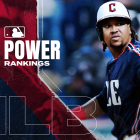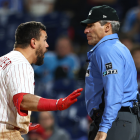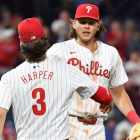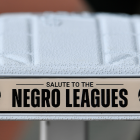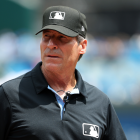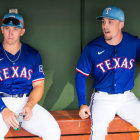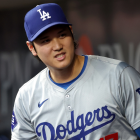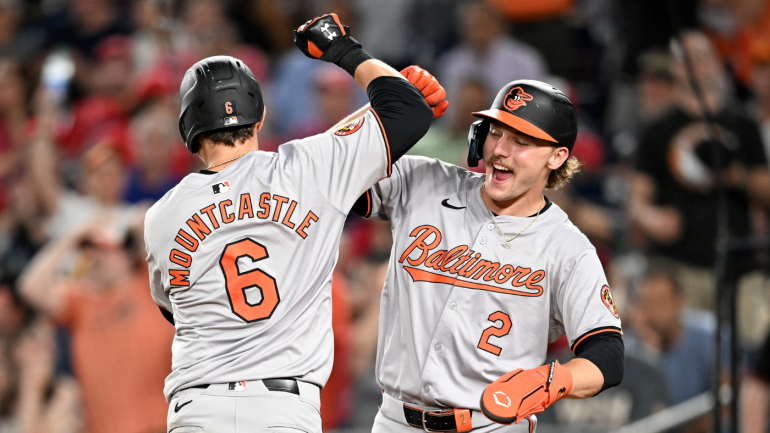
If there's one universal truth about being a human being, it's that the passage of time is uncaring and unrelenting. Take, among less morbid examples, this Major League Baseball season. It may feel like it just got underway, what with Opening Day festivities and the conga line of statistical firsts that accompany the start of each campaign, but the reality is that we're far enough along in the year for most teams to be at or beyond 40 games played. That's a quarter of the season down.
Rest assured, there's plenty of baseball still to be played in 2024. But, for our purposes, this point in the year does make for a convenient opportunity to check in on how each team is doing. As the headline above indicates, that's precisely what we've chosen to do in this article.
Below, you'll find writeups on each club accompanied by a grade reflecting how the team has performed to date. That grade is mostly descriptive and based on their performance to date, but we'll freely admit that in some cases we've also taken greater circumstances into account -- how the team was expected to perform; what their underlying measures indicate; and so on. As always, this is more of an art than a science.
With all that fine-print mumbo jumbo out of the way, let's get to it.
Arizona Diamondbacks: D
The defending National League champions have endured some rough breaks this year. Eduardo Rodriguez, who was supposed to be a rotation boon, has yet to make his season or team debut; Paul Sewald and Merrill Kelly either have or will miss a considerable amount of time; plans A and B at shortstop are down hurt at the same time; and it's more than fair to write no one saw Corbin Carroll performing this poorly out of the gate. In other words, it makes sense that they've started the season a little below expectations. We can only grade on what's happened, though, and as such we have to give the D-backs a D for their performance to date. Better times await, we suspect.
Atlanta Braves: A
The Braves are one of the few and far between teams who can realistically assert that it's World Series or bust. That's why it hurts all the more that ace Spencer Strider will miss the rest of the season following elbow surgery. The Braves have also seen a few key hitters get off to slow starts, Ronald Acuña Jr. and Matt Olson included. That combination, plus the Phillies' white-hot start, explains why they're sitting in second place in the National League East. Even with all that said, they're on pace to win more than 100 games. We could give them a B, but come on.
Baltimore Orioles: A
Of course the Orioles fetch an A grade. They've played very well, and the troubles they've experienced -- mostly related to Craig Kimbrel's shakiness and Jackson Holliday's career-opening woes, but also Cedric Mullins' uncharacteristically poor hitting -- are relatively minor blips, all things considered. Whether or not they secure their second consecutive American League East title is to be determined by things like health and head-to-head matchups, but the Orioles have a well-stocked farm system, largely clean books, and a new owner who should be champing at the bit for a big deadline. The right moves could see the O's win their first World Series title since 1983.
Boston Red Sox: B
We were tempted to give the Red Sox an A because they've surpassed expectations, especially on the pitching side of things. Who would've thought that Boston would get this much mileage out of the likes of Kutter Crawford and Cooper Criswell? That's without mentioning some outstanding early season bullpen duty by Justin Slaten, Greg Weissert, and Brennan Bernardino. Ultimately, we landed on a B grade because, hey, they are in third place in a division that many people are classifying as a two-team race. We have some concerns about their infield, too, specifically on the offensive side. Triston Casas and Trevor Story are injured, and in their absences the Red Sox haven't yet found a way to get anything approximating average production from the non-third base positions.
Chicago Cubs: A
We expected the Cubs to be right in the middle of the National League Central race. They are. The rotation has been excellent, with Shota Imanaga jockeying for position against Yoshinobu Yamamoto and Jared Jones in both the NL Cy Young and Rookie of the Year Award races. The Cubs have also been able to absorb some early injuries to Cody Bellinger and Dansby Swanson thanks to fantastic starts from Seiya Suzuki, Christopher Morel, Mike Tauchman, and Michael Busch. We thought the Cubs were the favorites to win the Central because of their ability to upscale internally. That remains the case, as at some point this season, we fully expect Cade Horton (arguably the best pitching prospect left in the minors) to play a role on the staff. All is well in Chicago, in other words.
Chicago White Sox: F
No one should have expected this team to be any good. Losing Luis Robert Jr. and Yoán Moncada to injury made them even worse. On the bright side, they have received some positive pitching performances. Gambling on Erick Fedde's overseas improvements seems to have been a wise decision, and converted reliever Garrett Crochet has pitched a lot better than his bloated ERA indicates. We'll add that there's one other insult about this White Sox season: No matter how poorly they play, they cannot pick higher than 10th next summer on account of MLB's relatively new rules concerning revenue sharing and lottery repeaters. Oof.
Cincinnati Reds: D
The Reds were a trendy pick to make the postseason after coming up just short last summer. You wouldn't have known it based on how they've started this year. To be fair, they're without Matt McLain (shoulder surgery) and Noelvi Marte (suspension). But that alone doesn't excuse nearly lineup-wide underperformance. We do think the Reds will play better heading forward, if only because of this tidbit: they're an MLB-worst 1-8 in one-run games. That kind of extreme performance tends to even out over the long run. (And hey, even if you don't trust us on that statement, it's not like it can get much worse.)
Cleveland Guardians: A
Elsewhere in Ohio, the Guardians are the most surprising first-place team in the majors -- in more ways than one. You look at their roster, and it sure feels like they've been more than the sum of their parts to an unsustainable extent. To wit, of their 12 position players with 80 or more plate appearances, they have more with OPS+ below 80 (four) than above 110 (three). The rotation offers a similarly befuddling situation: of their five starters, three have ERA+ below 80. They're without Shane Bieber for the year and Steven Kwan and Gavin Williams for the time being. How is this team in first place? Part of it is an outstanding (and likely fleeting) 6-2 record in extra-inning contests. Most other teams haven't played six extra-inning contests, let alone recorded six wins. We're not trying to rain on Cleveland's parade -- ultimately, they're in first place and that's what matters most -- but we'd be lying if we wrote that we expected them to remain there.
Colorado Rockies: F
It's never a good sign when you set a record by trailing at some point in each of your first 31 games. To be fair, the Rockies have gained momentum lately. They also have some legitimate positive developments in progress. To name one: Brenton Doyle is among the best defensive outfielders in baseball. If his gains at the plate are legitimate (he's significantly cut into his strikeout rate), then that's a game changer for his outlook. Even so, it's hard to justify a higher grade when the Rockies are a bad week away from having the worst record in the majors.
Detroit Tigers: C
There are some good things happening in Detroit. Riley Greene might be the most improved hitter in baseball, and the Tigers' pitching staff has been an asset to date. That said, we felt like a C was as high as we could go because of the greater circumstances. The Tigers are mired in fourth place thanks to some surprisingly good starts from the Guardians and the Royals, and they have some hard questions to answer about why former No. 1 pick Spencer Torkelson and top prospect Colt Keith have started so poorly. If they can find some hitting between now and the deadline, they might be in for an interesting second half. As it is, this team feels like a .500 club, give or take.
Houston Astros: F
The Astros have been the biggest team-level disappointment of the year. Blame it on the injuries that had an entire rotation sidelined; blame it on a 2-9 record in one-run games; blame it on the boogie, whatever. The fact of the matter is this season appeared to our eyes to be Houston's last big hurrah with this group. There's enough time left to turn things around, but it's going to be a steep uphill climb. Given that the Astros don't have much of a farm system to promote or trade from, they're going to need their veterans to do the heavy lifting if they're going to make it back to October.
Kansas City Royals: A
The secret to the Royals' early-season success has been their play against bad teams. They're 18-6 when faced with a losing club, and that performance has them on pace for 96 wins overall. Kansas City was hyperactive over the offseason, but we must admit that even with the upgrades we felt they'd fall somewhere around .500. Will they maintain this level heading forward? We're skeptical. The lineup is shallow, and we expect some regression from Seth Lugo, Brady Singer, and Alec Marsh. Still, the Royals are well positioned to enjoy their first winning season since 2015.
Los Angeles Angels: F
Shohei Ohtani is gone. Mike Trout is hurt. The Angels are, as of this writing, in last place in a division that features one nihilistic tank job (the Athletics) and a hitherto catastrophic season from a perpetual contender (Astros). There are a couple of bright spots here: Logan O'Hoppe is solidifying himself as a starting catcher; Jo Adell is finally making good on his promise; and Tyler Anderson is doing his best to restore whatever trade value he lost last year. But, from our perspective, the true silver lining for the Angels is that the season will eventually come to a close.
Los Angeles Dodgers: A
The Dodgers are on pace to win 104 games. The MVP Three all have OPS+ of 149 or better and both Tyler Glasnow and Yoshinobu Yamamoto have performed like aces. There are some negative things to point out -- the Dodgers are almost certainly going to have to add pitching at the deadline, and they've received nothing good from either Gavin Lux or Chris Taylor. Otherwise? They're absolutely as good as advertised, and they remain the favorites to win the National League pennant.
Miami Marlins: F
The Marlins were never going to repeat last season's magical run to the playoffs. New head executive Peter Bendix spent the offseason more concerned with improving the front office than the field roster. It shows. Bendix did give this group a chance to prove last season wasn't a fluke, but when they didn't, he began what's likely to be a rebuild by trading away two-time All-Star Luis Arraez. Even if you like the return Bendix netted, it's hard to give a team higher than an F when they're so bad they're beginning the sell-off before Memorial Day.
Milwaukee Brewers: A
The Brewers endured a winter of losses -- be it Corbin Burnes, Craig Counsell, or David Stearns -- and have responded with a spring of wins. We will freely admit we didn't see Brice Turang and Blake Perkins being this productive at the plate. Elsewhere, Rhys Hoskins is a strong candidate for Comeback Player of the Year. The Brewers have to figure out the back of their rotation, but all indications have them in the running for their seventh playoff appearance in eight tries.
Minnesota Twins: B
After a slow start, the Twins have rebounded in a major way. Carlos Correa is quietly having a stellar season, and Ryan Jeffers has to be in the running for MLB's most underrated player. Speaking of, Bailey Ober merits more attention on that front -- he's not flashy and he's not famous, but he always seems to get his numbers. The Twins have some messes to clean up between now and the deadline, but we would still categorize them as the favorites to win the American League Central.
New York Mets: C
The Mets have had an OK season on the balance. Some of their best players have underperformed -- we're looking at you, Francisco Lindor and Jeff McNeil -- but they've also hit on offseason additions Luis Severino and Sean Manaea, among others. (Who had Reed Garrett, of all people, dominating like this?) Hanging around .500 is about what we expected from them record-wise, too.
New York Yankees: A
The Yankees have to be pleased that they're right in the mix of the American League East despite not yet receiving a start from Gerrit Cole. Juan Soto has been as brilliant as desired, and closer Clay Holmes has begun his walk year with 17 consecutive scoreless innings. The Yankees still have some areas of concern to address -- it would be nice if Gleyber Torres remembered he was a free agent this winter, too -- but overall it's hard to nitpick given the circumstances.
Oakland Athletics: D
It says a lot about a team's greater circumstances when a 73-win pace feels like a momentous overachievement. Give the A's players and coaches credit for trying hard and for giving this club some actual wins: Mason Miller might be the best reliever in baseball; Abraham Toro is finally breaking out; and so on. Even with all that established, we found it hard to justify giving them a higher grade. Blame it on John Fisher's shamelessness.
Philadelphia Phillies: A
The Phillies' rotation has been outstanding. They've thus far had no troubles weathering star shortstop Trea Turner's absence. And they appear to be a legitimate threat to end the Braves' six-year run atop the National League East. What more could you want? Easy A.
Pittsburgh Pirates: D
The Jared Jones-Paul Skenes duo certainly makes this Pirates team a lot more watchable and interesting. But, we must admit, this season has disappointed us. The Pirates are deep enough into this rebuild -- five of their last seven first-round picks have played in the majors for them this season -- that they shouldn't be taking steps back. Right now, they're on pace to win five fewer games compared to last season. Maybe Skenes' arrival will help change their trajectory. For now, we have to give them a D.
San Diego Padres: B
The Padres have some things to iron out -- like whatever is going on with Joe Musgrove and Xander Bogaerts -- but, on the whole, they have to be thrilled to be in second place in the National League West. Dylan Cease and Luis Arráez have taken well to San Diego, and Jurickson Profar has -- to date, anyway -- been one of the best signings of the offseason. Even the Padres didn't expect to get a quarter of a season's worth of MVP-caliber production when they inked Profar for $1 million back in February. Add in a series victory against the Dodgers, and San Diego is riding high.
San Francisco Giants: D
The Giants spent a lot of resources this winter trying to turn themselves into a contender. So far, it hasn't worked out. Jordan Hicks and Jung Hoo Lee have adjusted to new circumstances -- Hicks being a starter, Lee being in his first year in MLB -- better than expected. But Matt Chapman and Jorge Soler have not, and Blake Snell is out injured after a late (and tough) start to the season. There's ample time for those veterans to turn things around, but it has to qualify as a disappointment that the Giants are in fourth place after an eventful offseason.
Seattle Mariners: B
You might argue that all first-place teams deserve an A. Maybe, but we have some real reservations about the Mariners offense. They're ranked near the bottom of the American League in basically every category, and it's hard to feel that it's just a team-wide slump when it's lasted this deep into the season. We do think Julio Rodríguez and some of Seattle's other hitters will get going at some point, but Jerry Dipoto might have his work cut out for him adding bats at the deadline.
St. Louis Cardinals: F
Last season, the Cardinals could hit but couldn't pitch. This season has been the inversion of that, with their influx of arms holding up their end of the bargain, only for the bats to let them down. Paul Goldschmidt might be cooked; Willson Contreras is out for months to come; and neither Nolan Gorman nor Jordan Walker have developed into reliable middle-of-the-order boppers. This is not a franchise used to consecutive disappointing seasons, but that seems to be their fate.
Tampa Bay Rays: D
The jarring thing about this Rays season is that it feels like it could've been worse. Not just from a run differential perspective (though they have outperformed their mark by three wins already), but from a personnel point of view. If you had been told in February that Yandy Díaz and Randy Arozarena would scuffled like this; that Aaron Civale would continue to defy his otherwise solid peripherals; that Pete Fairbanks would have nearly as many memorable post-game rants as converted saves; and that Richie Palacios and Ben Rortvedt would be two shining stars for the lineup … well, we wouldn't have expected them to be sitting around .500.
Texas Rangers: B
Considering that the Rangers knew coming into the year they'd be without Jacob deGrom and Max Scherzer for an extended period of time, they have to be happy with the results. That doesn't mean they have to be thrilled with every development -- preseason Rookie of the Year Award favorite Wyatt Langford has underperformed relative to expectations, and MVP candidate Corey Seager has been sneaky bad to date -- but it does mean that, on the whole, this has been a solid start for the defending World Series champions.
Toronto Blue Jays: F
This may seem harsh, but bear in mind that the Blue Jays appear fortunate to have only an 18-22 record. Their run differential, often more predictive in small samples, is befitting of a 15-25 mark. The Blue Jays have received little from Bo Bichette, George Springer, Alejandro Kirk, and Kevin Kiermaier. Kevin Gausman and Chris Bassitt have underperformed, to the extent that, as of this writing, they have higher ERA than Alek Manoah does. This, like the last several seasons, was supposed to be the year this group finally broke through. So much for that.
Washington Nationals: C
The Nationals have been better than we expected. Their young double-play combination, CJ Abrams and Luis García Jr., has been outstanding. They've gotten more mileage from cast-off veterans like Jesse Winker and Trevor Williams than could have been reasonably forecast. They should add James Wood, one of the top prospects in the minors, to their lineup before long. On the whole, we think things are finally on the upswing in D.C. after a few downtrodden years.














